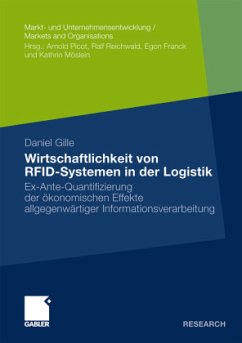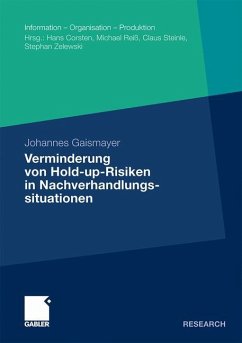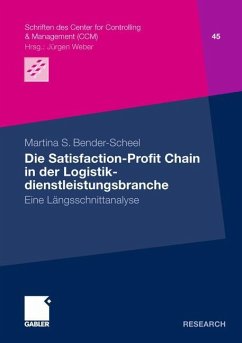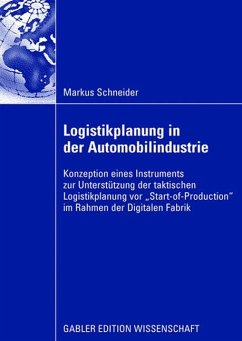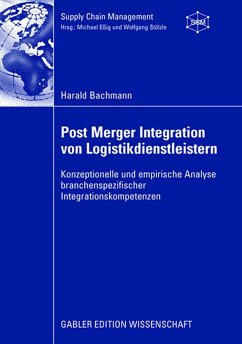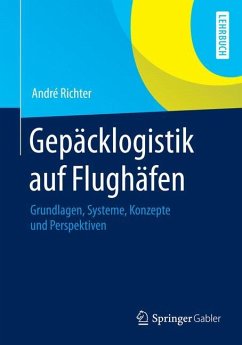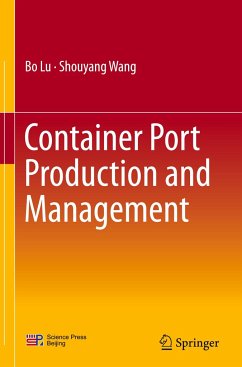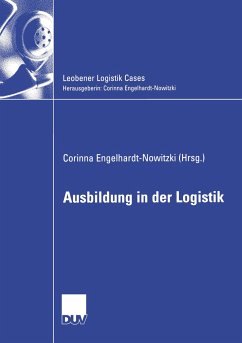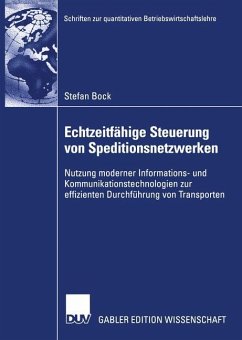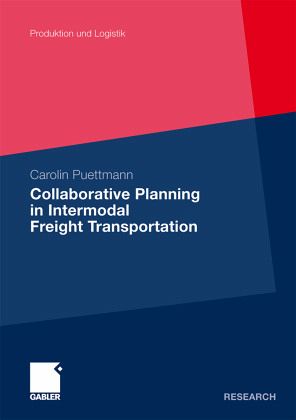
Collaborative Planning in Intermodal Freight Transportation
Versandkostenfrei!
Versandfertig in 6-10 Tagen
53,49 €
inkl. MwSt.

PAYBACK Punkte
0 °P sammeln!
Today, an increasing number of transports is executed using multiple modes. However, there is typically a lack of collaboration among the transportation service providers involved, although coordination bears a high savings potential. In this thesis, a collaborative planning approach is elaborated which is able to reduce the inefficiencies in an intermodal transportation chain. The new concept meets the crucial requirements that legally independent partners keep their individual planning domain and that only non-critical data is exchanged. It is able to cope with self-interested and even with ...
Today, an increasing number of transports is executed using multiple modes. However, there is typically a lack of collaboration among the transportation service providers involved, although coordination bears a high savings potential. In this thesis, a collaborative planning approach is elaborated which is able to reduce the inefficiencies in an intermodal transportation chain. The new concept meets the crucial requirements that legally independent partners keep their individual planning domain and that only non-critical data is exchanged. It is able to cope with self-interested and even with opportunistic behaviour of the collaborating parties. Results of extensive numerical tests indicate that significant improvements of the transportation chain performance can be achieved.





